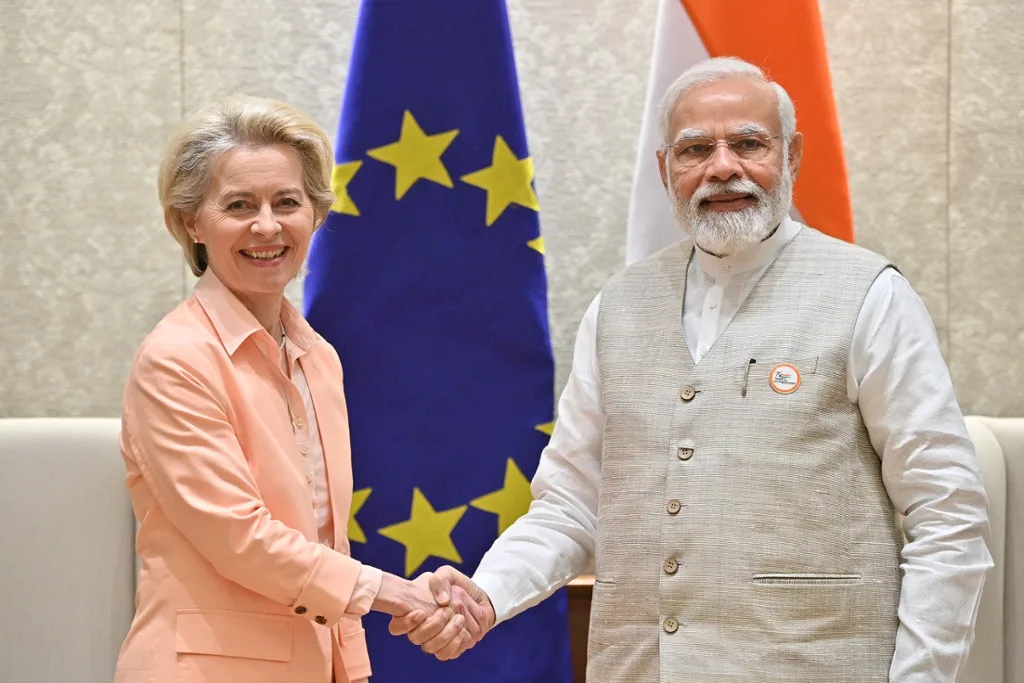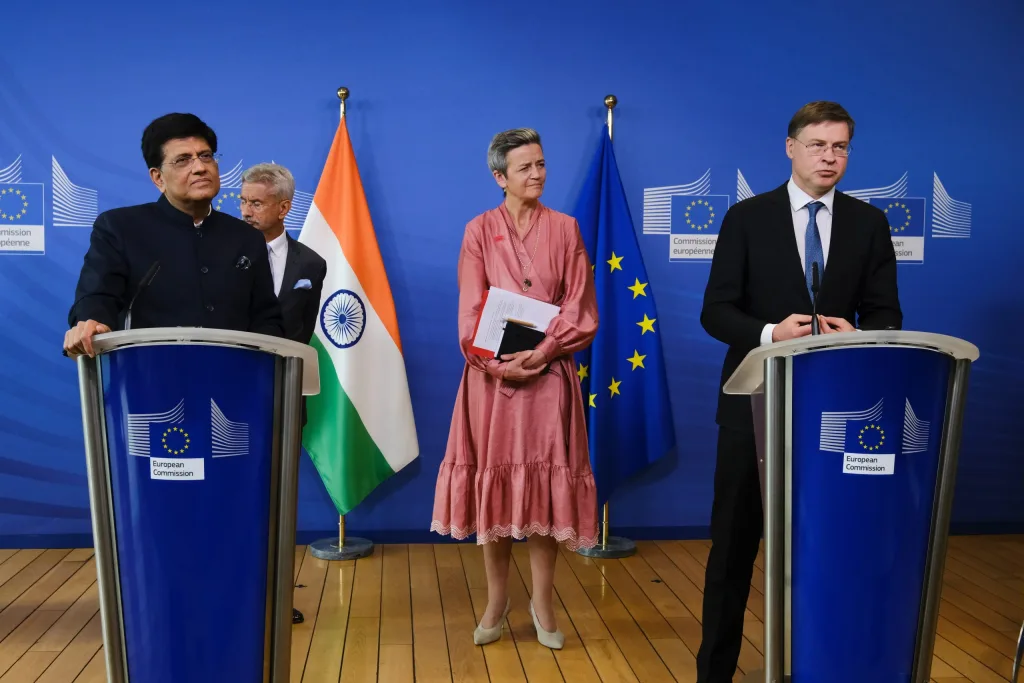Brussels, Belgium – India and the European Union (EU) have announced their shared commitment to conclude negotiations for a comprehensive free trade agreement by the end of 2025. This significant development follows a meeting in Brussels between Indian Minister of Industry and Commerce Piyush Goyal and European Commissioner for Trade and Economic Security Maros Sefcovic.
Minister Goyal emphasized the productive nature of the discussions, highlighting the focus on enhancing market access for businesses on both sides and strengthening resilient and diversified supply chains. In a post on his X (formerly Twitter) account, he stated,
“We reaffirmed our shared commitment to concluding the India-EU Free Trade Agreement negotiations by the end of 2025.”

The meeting also addressed key aspects for a future-oriented agreement, including “boosting innovation and competitiveness, and the critical role of investments and mobility,” according to Goyal. These elements underscore the ambition of both sides to forge a modern and mutually beneficial economic partnership.
The pursuit of a free trade agreement between India and the EU has been a long-standing endeavor. Negotiations were initially launched in 2007 but faced significant hurdles, leading to a suspension of talks in 2013. The primary sticking points revolved around contentious issues such as intellectual property rights, data protection regulations concerning IT companies, and the extent of access to the EU’s common market for specific Indian goods, notably automobiles.

However, recognizing the evolving global economic landscape and the strategic importance of closer ties, both India and the EU decided to revitalize the negotiation process in 2022. The renewed commitment to finalize the agreement by the end of 2025 signals a significant step forward and reflects the determination on both sides to overcome past differences and unlock the immense potential for trade and investment between the two major economic entities.
The successful conclusion of this free trade agreement is expected to have far-reaching implications, fostering greater economic integration, creating new opportunities for businesses and consumers, and further strengthening the strategic partnership between India and the European Union.
